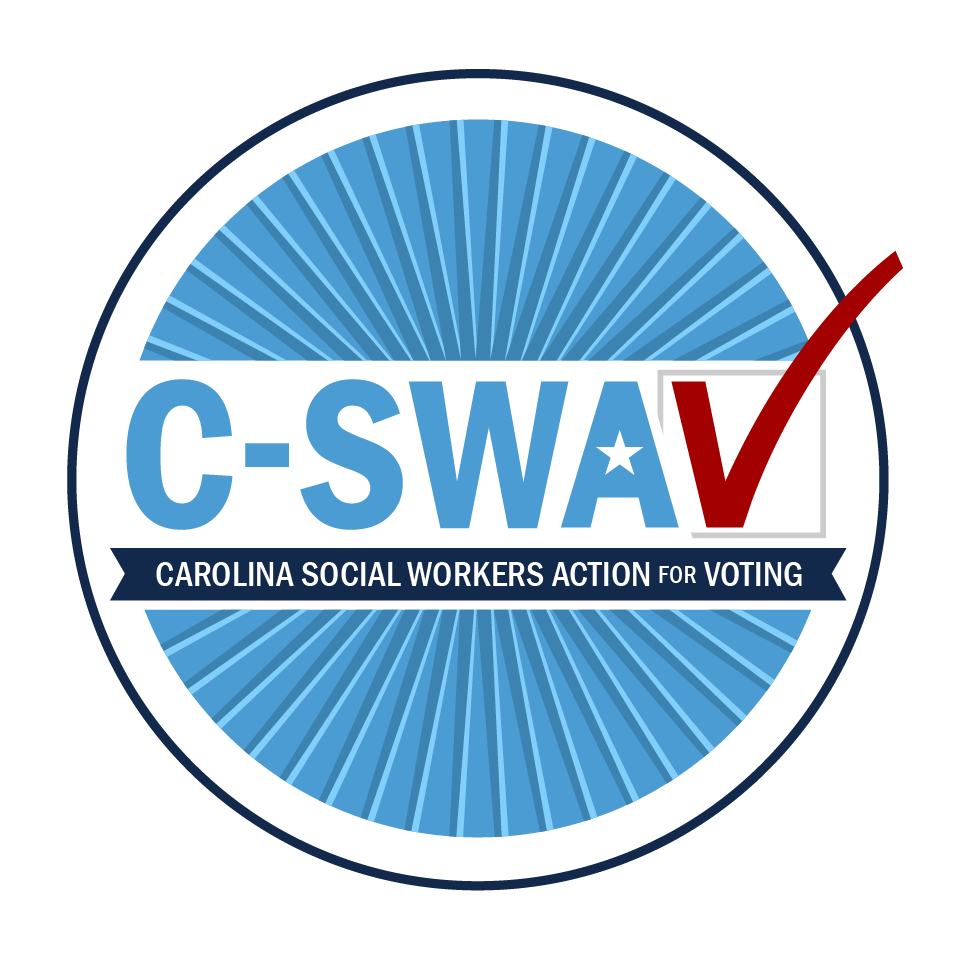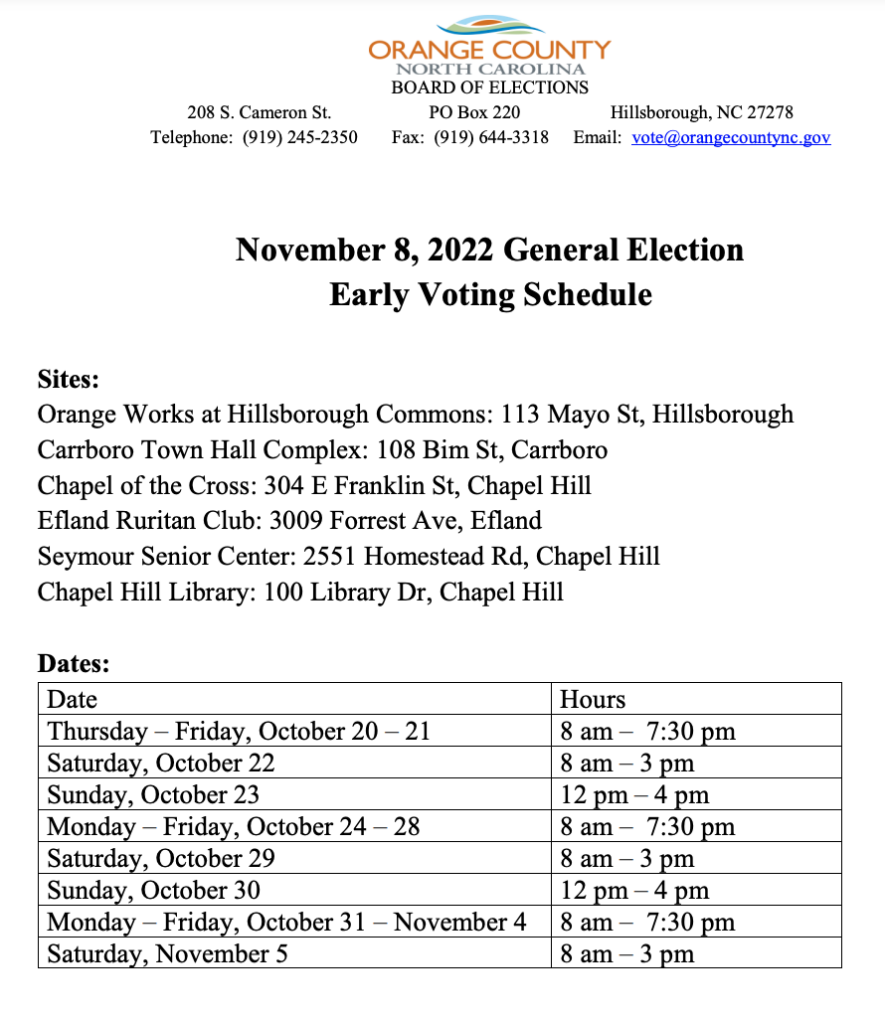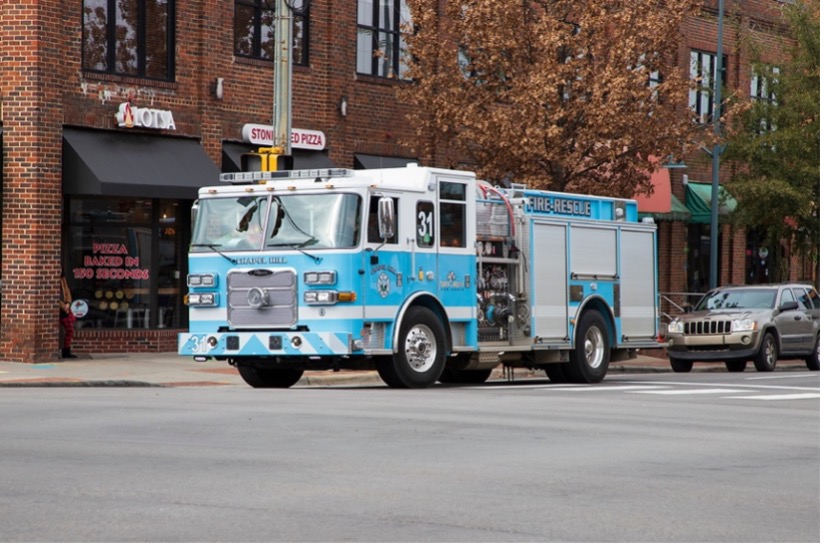The Jordan Institute for Families is proud to be part of Carolina Social Workers Action for Voting (C-SWAV), a non-partisan coalition of faculty, staff, and students within the UNC School of Social Work organizing to promote the following goals:
- Provide students, faculty, staff, alumni, and partners with the information they need to be able to vote safely and on time this election.
- Provide this community with resources so they can help others exercise their right to vote.
- Educate our community and beyond on the importance of voting rights and democracy in social work as part of our Code of Ethics and practice and the ways that voter suppression has long been, and continues to be, an artifact of oppression and racism in our national, state, and local history.
- Transforming Election Day—November 8—into a school-wide Day of Action in which classes are replaced with asynchronous activities so that students and faculty may support our local elections through a variety of volunteer opportunities. All efforts to support voting over the course of the season will be recognized on this day.
Voting Rights are a Social Work Value
There are several places in the NASW Code of Ethics that address the importance of voting, based in our values of self-determination for all people and in our commitment to challenge social injustice.
- Ethical Standard 6.04: Social and Political Action: (a) Social workers should engage in social and political action that seeks to ensure that all people have equal access to the resources, employment, services, and opportunities they require to meet their basic human needs and to develop fully. Social workers should be aware of the impact of the political arena on practice and should advocate for changes in policy and legislation to improve social conditions in order to meet basic human needs and promote social justice.
What’s on this Site?
- Ethical Principle: Social Workers Challenge Social Injustice: Social workers strive to ensure access to needed information, services, and resources; equality of opportunity; and meaningful participation in decision making for all people.
- Ethical Standard 6.02: Public Participation: Social workers should facilitate informed participation by the public in shaping social policies and institutions.
We have collected a variety of information for you to be able to have the resources you need to vote this November, support your clients, friends and community in voting, volunteer in this election, and educate yourself and others about the history of voting rights in our country and state.
We will be hosting a series of virtual trainings, events, and documentary screenings. Check out the events page of this site and connect with us on social media.
We have highlighted some particularly important websites in the side tabs. You Can Vote is an excellent nonpartisan organization with a wealth of information and resources. We highly recommend bookmarking this site. Voting is Social Work is a second site with great information that social workers and others can use in this important work. Vote411.org provides information about voter registration and who is on the ballet. DemocracyNC focuses on keeping elections fair, safe and accessible.
Our colleagues at University Libraries are hosting a number of wonderful events and sessions. Click here to learn more or check out our Events page.


